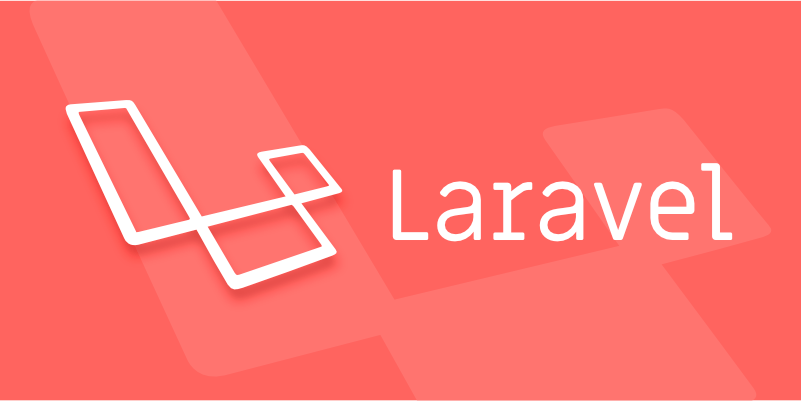What are Accessors and Mutators in Laravel Eloquent?
Jul 28, 2025 am 04:30 AMAccessor is used to format data when obtaining attributes, such as capitalization; Mutator is used to set the attributes before processing data, such as encryption password. For example: 1. Accessor uses the get{AttributeName}Attribute method to modify the display when reading the field, such as ucfirst processing the name; 2. Mutator uses the set{AttributeName}Attribute method to convert data before saving the field, such as bcrypt encryption password; 3. It can be used in scenarios such as time formatting, splicing fields, cleaning input, etc., and can be used to multiplex logic through Trait. Combined fields need to be added to the $appends array to support JSON output.

In Laravel's Eloquent ORM, Accessors and Mutators are two very practical features that allow you to format and process the properties of your model. Simply put:

- Accessors is used to process when obtaining attributes
- Mutators are used to process before setting property values
For example, if you want to convert the username stored in the database to uppercase display, or automatically encrypt it before saving the password, you can use these two functions.
What is Accessor
When you get a property value from the model, Eloquent can automatically do some formatting operations through the accessor. It does not change the original data in the database, but only affects the result when you read the attribute in your code.

For example, suppose your user table has a first_name field, and you want to automatically capitalize the first letter when fetching:
public function getFirstNameAttribute($value)
{
return ucfirst($value);
} In this way, every time you use $user->first_name , the returned version is capitalized.

Note: The method name of the accessor must follow the
get{AttributeName}Attributeformat, where{AttributeName}is the attribute name and uses camel nomenclature.
What is Mutator (Modifier)
Mutator works when you assign values to model properties and is usually used to convert or process data before saving to the database.
For example, you want to automatically hash encryption before saving the user's password:
public function setPasswordAttribute($value)
{
$this->attributes['password'] = bcrypt($value);
} In this way, no matter whether you pass in a plaintext or an encrypted string, it will be processed by bcrypt() before being stored in the database.
Similarly, the Mutator method name must follow
set{AttributeName}Attributeformat.
Usage scenarios and suggestions
Here are some common actual scenarios for using Accessor and Mutator:
- Format timestamp : For example, display
created_atas a more friendly format - Automatic encryption sensitive fields : such as password, ID number, etc.
- Splicing fields : For example, combining
first_nameandlast_nameto complete the name - Clean the input content : such as removing unnecessary spaces and filtering illegal characters
Some tips:
- If multiple fields require similar processing, consider encapsulating them into Trait or helper functions
- Avoid performing time-consuming operations in Accessor/Mutator, which can affect performance
- Do not process the same field repeatedly, as it can easily cause logical confusion
Small details: How to deal with combined fields?
For example, if you want $user->full_name to return first_name last_name , you can do this:
public function getFullNameAttribute()
{
return "{$this->first_name} {$this->last_name}";
} At this time, although there is no full_name field in the database, you can still access this "virtual property" through $user->full_name .
In addition, if you want this field to appear in the model's JSON output, remember to add it to the $appends property:
protected $appends = ['full_name'];
Basically that's it. Accessors and Mutators don't seem complicated, but they are very useful in actual development and can help you keep your code clean and logical. Just be careful not to abuse them, they are a good helper for your model layer.
The above is the detailed content of What are Accessors and Mutators in Laravel Eloquent?. For more information, please follow other related articles on the PHP Chinese website!

Hot AI Tools

Undress AI Tool
Undress images for free

Undresser.AI Undress
AI-powered app for creating realistic nude photos

AI Clothes Remover
Online AI tool for removing clothes from photos.

Clothoff.io
AI clothes remover

Video Face Swap
Swap faces in any video effortlessly with our completely free AI face swap tool!

Hot Article

Hot Tools

Notepad++7.3.1
Easy-to-use and free code editor

SublimeText3 Chinese version
Chinese version, very easy to use

Zend Studio 13.0.1
Powerful PHP integrated development environment

Dreamweaver CS6
Visual web development tools

SublimeText3 Mac version
God-level code editing software (SublimeText3)

Hot Topics
 How to use PHP to develop a Q&A community platform Detailed explanation of PHP interactive community monetization model
Jul 23, 2025 pm 07:21 PM
How to use PHP to develop a Q&A community platform Detailed explanation of PHP interactive community monetization model
Jul 23, 2025 pm 07:21 PM
1. The first choice for the Laravel MySQL Vue/React combination in the PHP development question and answer community is the first choice for Laravel MySQL Vue/React combination, due to its maturity in the ecosystem and high development efficiency; 2. High performance requires dependence on cache (Redis), database optimization, CDN and asynchronous queues; 3. Security must be done with input filtering, CSRF protection, HTTPS, password encryption and permission control; 4. Money optional advertising, member subscription, rewards, commissions, knowledge payment and other models, the core is to match community tone and user needs.
 Guide to matching Laravel routing parameter passing and controller method
Jul 23, 2025 pm 07:24 PM
Guide to matching Laravel routing parameter passing and controller method
Jul 23, 2025 pm 07:24 PM
This article aims to resolve common errors in the Laravel framework where routing parameter passing matches controller methods. We will explain in detail why writing parameters directly to the controller method name in the routing definition will result in an error of "the method does not exist", and provide the correct routing definition syntax to ensure that the controller can correctly receive and process routing parameters. In addition, the article will explore best practices for using HTTPDELETE methods in deletion operations.
 Data_get practice for dynamic access to model association properties in Laravel Livewire
Jul 23, 2025 pm 06:51 PM
Data_get practice for dynamic access to model association properties in Laravel Livewire
Jul 23, 2025 pm 06:51 PM
This article aims to solve how to efficiently and securely access deep properties associated with model through string paths when dynamically rendering data in LaravelLivewire components. When you need to obtain specific fields of the associated model based on a configuration string (such as "user.name"), access using object properties will fail. The article will introduce Laravel's data_get helper function in detail and provide code examples to show how to use it to solve this problem gracefully and ensure the flexibility and robustness of data acquisition.
 How to develop AI intelligent form system with PHP PHP intelligent form design and analysis
Jul 25, 2025 pm 05:54 PM
How to develop AI intelligent form system with PHP PHP intelligent form design and analysis
Jul 25, 2025 pm 05:54 PM
When choosing a suitable PHP framework, you need to consider comprehensively according to project needs: Laravel is suitable for rapid development and provides EloquentORM and Blade template engines, which are convenient for database operation and dynamic form rendering; Symfony is more flexible and suitable for complex systems; CodeIgniter is lightweight and suitable for simple applications with high performance requirements. 2. To ensure the accuracy of AI models, we need to start with high-quality data training, reasonable selection of evaluation indicators (such as accuracy, recall, F1 value), regular performance evaluation and model tuning, and ensure code quality through unit testing and integration testing, while continuously monitoring the input data to prevent data drift. 3. Many measures are required to protect user privacy: encrypt and store sensitive data (such as AES
 How to set environment variables in PHP environment Description of adding PHP running environment variables
Jul 25, 2025 pm 08:33 PM
How to set environment variables in PHP environment Description of adding PHP running environment variables
Jul 25, 2025 pm 08:33 PM
There are three main ways to set environment variables in PHP: 1. Global configuration through php.ini; 2. Passed through a web server (such as SetEnv of Apache or fastcgi_param of Nginx); 3. Use putenv() function in PHP scripts. Among them, php.ini is suitable for global and infrequently changing configurations, web server configuration is suitable for scenarios that need to be isolated, and putenv() is suitable for temporary variables. Persistence policies include configuration files (such as php.ini or web server configuration), .env files are loaded with dotenv library, and dynamic injection of variables in CI/CD processes. Security management sensitive information should be avoided hard-coded, and it is recommended to use.en
 How to make PHP container support automatic construction? Continuously integrated CI configuration method of PHP environment
Jul 25, 2025 pm 08:54 PM
How to make PHP container support automatic construction? Continuously integrated CI configuration method of PHP environment
Jul 25, 2025 pm 08:54 PM
To enable PHP containers to support automatic construction, the core lies in configuring the continuous integration (CI) process. 1. Use Dockerfile to define the PHP environment, including basic image, extension installation, dependency management and permission settings; 2. Configure CI/CD tools such as GitLabCI, and define the build, test and deployment stages through the .gitlab-ci.yml file to achieve automatic construction, testing and deployment; 3. Integrate test frameworks such as PHPUnit to ensure that tests are automatically run after code changes; 4. Use automated deployment strategies such as Kubernetes to define deployment configuration through the deployment.yaml file; 5. Optimize Dockerfile and adopt multi-stage construction
 Deep analysis of matching Laravel routing parameter transfer and controller method
Jul 23, 2025 pm 07:15 PM
Deep analysis of matching Laravel routing parameter transfer and controller method
Jul 23, 2025 pm 07:15 PM
This article deeply explores the correct transmission of routing parameters and the matching mechanism of controller methods in the Laravel framework. In response to the common "method does not exist" error caused by writing routing parameters directly to the controller method name, the article elaborates on the correct way to define routing, that is, declare parameters in the URI and receive them as independent parameters in the controller method. At the same time, the article also provides code examples and suggestions on best practices for HTTP methods, aiming to help developers build more robust and RESTful Laravel applications.
 Laravel routing parameter passing: correctly define the controller method and routing binding
Jul 23, 2025 pm 07:06 PM
Laravel routing parameter passing: correctly define the controller method and routing binding
Jul 23, 2025 pm 07:06 PM
This article discusses the correct posture of parameter transfer of controller method in Laravel routing in depth. In response to common errors caused by writing routing parameters directly to the controller method name, the correct routing definition syntax is explained in detail, and the mechanism of Laravel automatic parameter binding is emphasized. At the same time, the article recommends using HTTPDELETE method that is more in line with RESTful specifications to handle deletion operations to improve the maintainability and semantics of the application.






